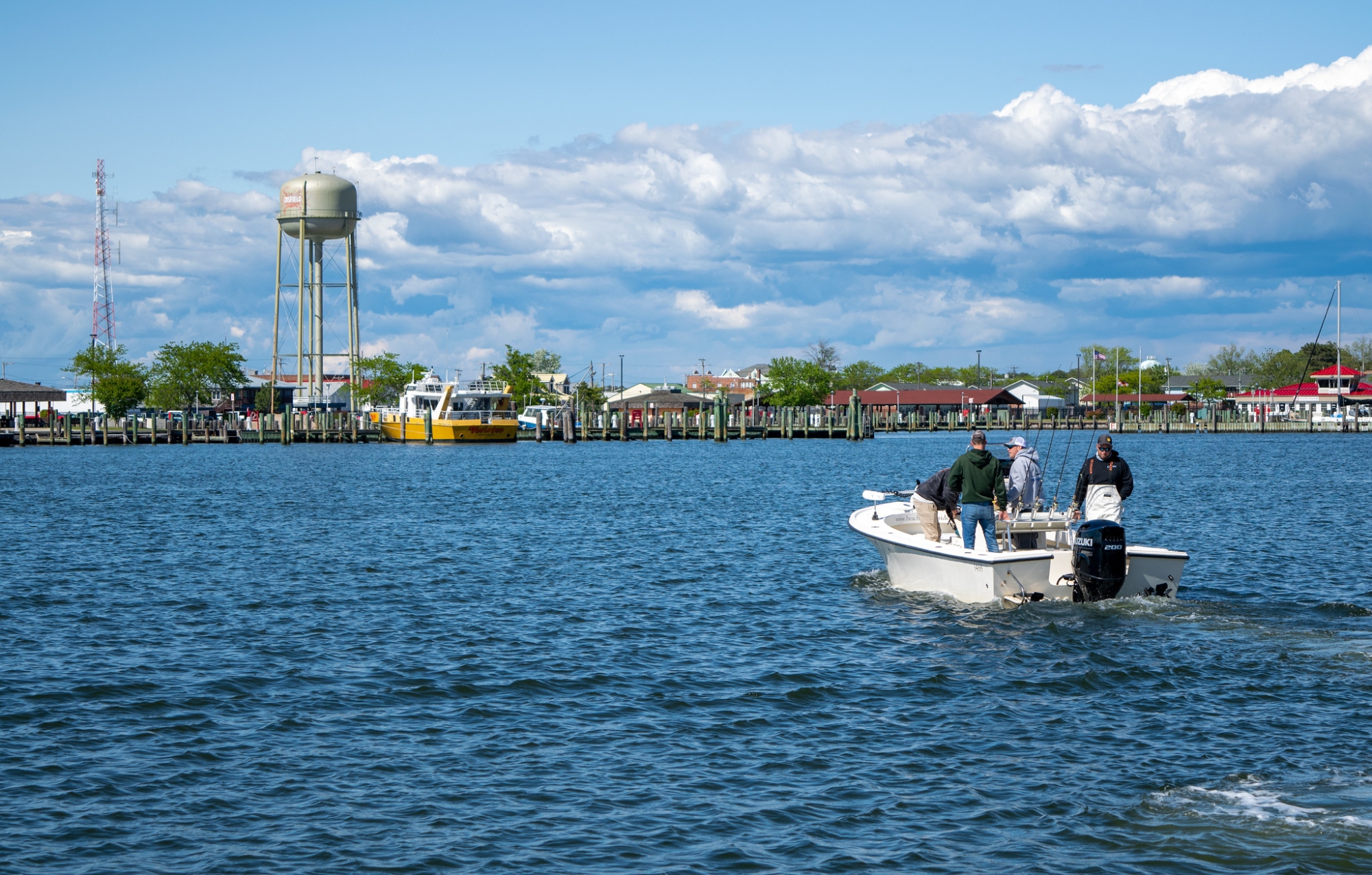Knauss legislative fellowships in Congress help build careers — and they're fun and educational. See our video and fact sheet for details.
Law Review Article Application Guidelines for Chesapeake Rising Symposium
Apply to Publish Your Research on Coastal Communities in the Mid-Atlantic Region

Calling Second and Third Year Law Students and Recent Graduates
Do you have a passion for innovative solutions to climate change? We’re looking for new voices to contribute research on issues facing coastal communities for a special edition on Chesapeake Rising: Innovative Law and Policy Solutions for Climate Adaptation in Coastal Communities in the Sea Grant Law & Policy Journal.
What’s the Opportunity?
Law students and recent graduates are invited to apply to publish a law review article in the Sea Grant Law & Policy Journal
First drafts of journal articles will be due September 1, 2025. This is an amazing opportunity make a real contribution to the ongoing conversation around coastal community resilience. We look forward to seeing your innovative ideas!
How to Apply
Submit the following materials by June 1:
- An abstract outlining your research
- An outline with a bibliography (complete but bulleted sentences are fine)
- Three experts who would serve as peer-review committee members
Peer-review committee members will be asked to anonymously review journal articles before publication.
Application materials are due June 1, 2025, and can be submitted via eSeaGrant. First drafts of journal articles will be due September 1, 2025.
What Happens Next?
After the submission deadline, application materials will be reviewed by a selection committee. Selected candidates will be invited to submit a law review article for publication in the Sea Grant Law & Policy Journal.
First drafts of journal articles will be due September 1, 2025. A peer-review committee will anonymously review journal articles before publication. Authors will also receive editing feedback and bluebook citations from the Sea Grant Law & Policy Journal.
Watch our Q&A webinar from December 19:
FAQs
Why is this research important?
Coastal communities in the Mid-Atlantic area, particularly those historically underserved and overburdened, are on the front lines of climate change. Rising sea levels, more frequent and severe storms, and shifting environmental conditions are already posing significant challenges. Adaptability is crucial for long-term sustainability, and your research could be part of the solution.
The Chesapeake Bay is one of the largest estuaries in the United States, comprising 64,000 square miles of watershed and 18 million people. The Chesapeake Bay faces a number of challenges due to climate change, most notably sea level rise and extreme weather events. Coastal communities within the Chesapeake Bay region are particularly susceptible to climate change effects because of the Bay’s naturally flat and low lying terrain, land subsidence, and high coastal population density. Additionally, many communities within the Bay region have traditionally faced disproportionate challenges.
Moderate predictions from the U.S. Geological Survey estimate 1.3-5.2 feet of sea level rise in the Bay over the next century. This could mean water intrusion onto miles of land in coastal areas, affecting areas like Maryland's Eastern Shore; Baltimore City; Washington, DC; and Virginia Beach, among others. Sea level rise also contributes to an increase in severe weather events. Heavy storms lead to soil erosion, increased stormwater runoff, and flooding. All of this causes devastation in coastal communities.
Due to the vast size of the Chesapeake region, management and restoration efforts necessitate collaboration between multiple states and their agencies, as well as federal agencies. The Bay is unique in its legal organization, with collaboration spearheaded by the Chesapeake Bay Program Office and the Bay Commission located within the Program. Additionally, all watershed states signed the Chesapeake Bay Watershed Agreement in 2014 to implement adaptive management throughout the watershed to improve the quality of the Bay.
What topics or key issues should my research cover?
All innovative ideas are welcomed and encouraged! To view a list of suggested research avenues and key issues facing coastal communities, visit our suggested topics page. Ideas from this list and new ideas will both be considered during application review.
What are the page limits for the abstract and outline?
- The limit for the abstract is 500 words.
- The page limit for the outline is 10 pages.
What should my outline include?
This should be an outline of the law review article you intend to write. It should be similar to a rough draft but can be in bulleted format.
What is the Sea Grant Law & Policy Journal? Who receives it, and is it published online?
The Sea Grant Law & Policy Journal is an online, scholarly publication of the National Sea Grant Law Center (NSGLC) that provides a forum for the timely discussion and exploration of legal topics of relevance to the Sea Grant network of extension agents, researchers, coastal managers and users, and local decision-makers. The journal features concise articles on a range of subjects that should be of interest to anyone involved in ocean, coastal, or Great Lakes resource management, lawyer and non-lawyer alike.
The NSGLC strives to support the creation of new law and policy knowledge through rigorous, peer-reviewed research competitions.
Have additional questions? Please contact Kerry McClaughry at kerrymcc@umd.edu.





